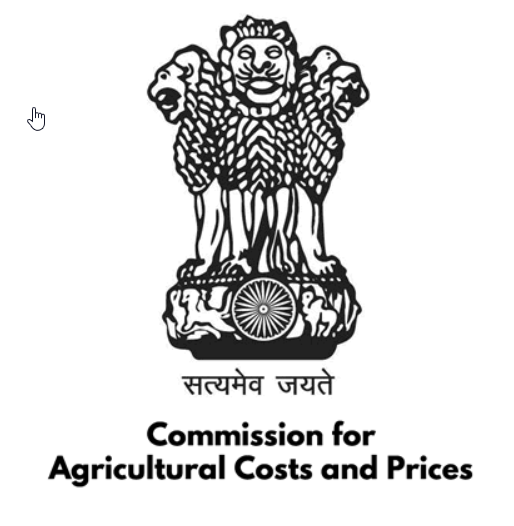Commission for Agricultural Costs and Prices
The Commission for Agricultural Costs and Prices (CACP) is an advisory body set up by the Government of India in 1965. It is mandated to recommend minimum support prices (MSPs) for 23 key agricultural commodities and to ensure a remunerative price environment for farmers.
History
- The CACP was established in January 1965 to advise the government on price policy for agricultural commodities. It was initially set up as the Agricultural Prices Commission (APC) and was later renamed as the Commission for Agricultural Costs and Prices in 1985.
Functions
The main functions of the CACP are:
- To recommend minimum support prices (MSPs) for 23 agricultural commodities, including paddy, wheat, jowar, bajra, maize, ragi, barley, gram, tur, moong, urad, lentil, groundnut, soybean, sunflower seed, rapeseed-mustard, safflower, nigerseed, copra, raw cotton, raw jute, and sugarcane.
- To analyze the cost of production of these commodities and ensure a remunerative price environment for farmers.
- To monitor trends in prices, production, and availability of agricultural commodities.
- To advise the government on import and export policies for agricultural commodities.
- To examine issues related to the rationalization of input prices, crop insurance, and other measures to ensure the welfare of farmers.
Composition
The CACP consists of a chairman, member secretary, and two members. They are usually senior economists or civil servants with expertise in agriculture, economics, or public administration. The commission also has a team of technical staff who assist in data collection, analysis, and report preparation.
Methodology
The CACP follows a rigorous methodology to arrive at its recommendations for MSPs:
- It sends questionnaires to state governments to gather data on the cost of cultivation and production.
- It conducts field surveys to cross-verify the data provided by the states.
- It holds discussions with various stakeholders, including farmers, traders, and industry representatives.
- It analyzes trends in domestic and international prices, supply and demand, and other relevant factors.
- Based on this analysis, it recommends MSPs for each commodity, which are then approved by the Cabinet Committee on Economic Affairs (CCEA).
Impact
The recommendations of the CACP have a significant impact on the agricultural sector in India:
- The MSPs provide a guaranteed price to farmers for their produce, which helps to ensure a stable income and encourage investment in agriculture.
- The MSPs also serve as a benchmark for market prices and help to prevent excessive price fluctuations.
- The recommendations of the CACP also influence the government’s food procurement and distribution policies, which have implications for food security and public distribution.
Challenges and Criticisms
Despite its important role, the CACP faces several challenges and criticisms:
- Some experts argue that the methodology used by the CACP to calculate the cost of production is outdated and does not reflect the true cost incurred by farmers.
- There are concerns that the MSPs recommended by the CACP are not always adequately remunerative for farmers, particularly in the face of rising input costs.
- The implementation of the MSPs is also a challenge, as not all farmers are able to sell their produce at the guaranteed price due to inadequate procurement infrastructure.
The Commission for Agricultural Costs and Prices plays a vital role in ensuring a remunerative price environment for farmers in India. While it faces several challenges, its recommendations continue to shape agricultural price policy and have a significant impact on the welfare of farmers and the overall food security of the nation.


